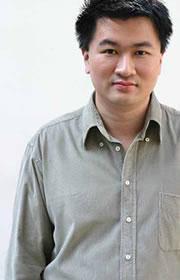the path to ultimate riches
would you like to know the secret to achieving unlimited wealth?
The answer lies between your ears.
No, really. the answer lies between your ears.
While we can't bring anything with us to the grave, the most important thing we have while we're alive is our mind.
The mind isn't necessarily just located within our brain.
I define the mind as the summary of our thoughts and feelings, including our intuition or gut feelings.
Our mind is what lets us dream at night when we go to sleep, what gives us a fresh sense of hope and drive each morning when we wake up (some mornings before tougher than others).
Our mind is the skeleton key which often unlocks unsolvable dilemmas (that is, until they're solved, then they become minor stumbling blocks, upon later reflection).
Our mind is one of the remaining organs which remains fairly sharp even after the body starts to slow down.
In fact, I've just listened to a BBC World Service programme, The Interview (the URL will probably be incorrect after a weekly update) with Carl Djerassi.
Known as the man who created a social revolution, he invented the contraceptive pill, and transformed the lives of millions of women by given them more choice and control over when they had children.
Although he's aged 82, his voice was vibrant and lucid and bursting with ideas.
Breaking beyond the boundaries of chemsitry, he's recognised for having an extensive collection of Paul Klee works. His drama "An Immaculate Misconception" has been staged in Singapore by the Singapore Repertory Theatre (SRT).
His website provides an interesting treasure trove of information.
However, the one question i'm wondering about is that if more people learn about the importance of their mind (compared to material possessions), why aren't more people investing in developing and improving their minds?
Most would probably agree that books can be a good source of information and are, for the most part, affordable.
However, I've been wondering why reading is on the decline.
There are few readers in this generation compared to thirty years ago.
Granted there are blips along the way, with the Harry Potter books.
But Harry Potter does not equal a literary tradition.
Why would literature be useful for today's society?
Besides providing insight into our past (without which we will not be able to navigate through the present into the future), books and the printed word captures the thoughts of our ancestors, the 'zeitgeist' or spirit of the times so to speak.
take a challenge and go read a book today.
it might just change how you think, how you feel and ultimately how you live your life.
The answer lies between your ears.
No, really. the answer lies between your ears.
While we can't bring anything with us to the grave, the most important thing we have while we're alive is our mind.
The mind isn't necessarily just located within our brain.
I define the mind as the summary of our thoughts and feelings, including our intuition or gut feelings.
Our mind is what lets us dream at night when we go to sleep, what gives us a fresh sense of hope and drive each morning when we wake up (some mornings before tougher than others).
Our mind is the skeleton key which often unlocks unsolvable dilemmas (that is, until they're solved, then they become minor stumbling blocks, upon later reflection).
Our mind is one of the remaining organs which remains fairly sharp even after the body starts to slow down.
In fact, I've just listened to a BBC World Service programme, The Interview (the URL will probably be incorrect after a weekly update) with Carl Djerassi.
Known as the man who created a social revolution, he invented the contraceptive pill, and transformed the lives of millions of women by given them more choice and control over when they had children.
Although he's aged 82, his voice was vibrant and lucid and bursting with ideas.
Breaking beyond the boundaries of chemsitry, he's recognised for having an extensive collection of Paul Klee works. His drama "An Immaculate Misconception" has been staged in Singapore by the Singapore Repertory Theatre (SRT).
His website provides an interesting treasure trove of information.
However, the one question i'm wondering about is that if more people learn about the importance of their mind (compared to material possessions), why aren't more people investing in developing and improving their minds?
Most would probably agree that books can be a good source of information and are, for the most part, affordable.
However, I've been wondering why reading is on the decline.
There are few readers in this generation compared to thirty years ago.
Granted there are blips along the way, with the Harry Potter books.
But Harry Potter does not equal a literary tradition.
Why would literature be useful for today's society?
Besides providing insight into our past (without which we will not be able to navigate through the present into the future), books and the printed word captures the thoughts of our ancestors, the 'zeitgeist' or spirit of the times so to speak.
take a challenge and go read a book today.
it might just change how you think, how you feel and ultimately how you live your life.


<< Home